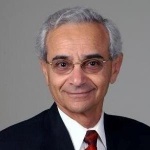November 18, 2009
Practicing Exile, a book review
Practicing Exile, Marc Ellis, Fortress Press, pp 169
I had bought this book a couple of years ago, read it and admired it, then forgot about it.
That is until Professor Ellis was visiting Ottawa again, and I was asked by Independent Jewish Voices to introduce him before a scheduled talk.
What better way to know a person than to re-read his book, which he calls a religious odyssey of an American Jew.
For Marc Ellis is a devout Jew who is struggling with how to be one while at the same time remaining aloof from what is happening in Palestine in his name. It is made up of ten chapters in addition to the introduction and epilogue.
Right at the beginning he states: “In my opinion, the central question of contemporary Jewish life is framed by the displacement and oppression of the Palestinians” adding “I cannot acquiesce in the ethical violations of the covenant that now stand at the front of what it means to be Jewish.”
Yom Kippur is the Jewish day of fasting and of personal and communal confession, when Jews are commanded to face themselves and others. But Professor Ellis laments the fact that the Jews have never confessed to the Palestinians on that day – or any other day of the year.
He is not afraid to ask “Did God choose the Jews?” and then admits that in life the answer eludes him. But later in the book he states that some Jews can affirm that the choosiness of Jews does not preclude that of others.
His sense of social justice is expressed when he reminds us that the destitute are no different from the affluent except in circumstances and opportunity. Therefore, he reminds us, when a nation is built on disenfranchisement of others, isolation and militarism is the outcome.
In this context he admits that within Israel, Palestinians are decidedly second – or even third class citizens, because of the arrogance of Jewish Israeli culture, and thus asks how he can celebrate Jewish liberation when another people is enslaved.
He also points out the division of Israeli society between the affluent and the poor, and talks about the colour line, whereby prison populations are disproportionately from North African and Arab background. This theme is repeated throughout the book.
He discusses the beginning of Israel, clearly admitting that its creation depended on the removal of hundreds of thousands of Palestinians, which he fears might become permanent.
And so he argues for justice, as he would in South Africa and Bosnia. His international and global view of the problem makes him ask the bold question “Did Cambodians slaughtered in the killing fields experience less terror and loss than the Jewish victims of the Nazi era?” also referring in the same breath to Rwandans, Bosnians and Algerians, and later in the book, to African Americans.
He confronts the issue of the anti-Semitic label when he observes adults with stature and security falling silent in the face of a charge of anti-Semitism, adding in italics “as if Jews in the present are suffering”.
Indeed, in the epilogue the author emphasises the positions of wealth and power of Jews today, saying “Jews have made it in society and the academy.”
Like Norman Finkelstein, he addresses the misuse of the Holocaust as a shield against critical thought. He does not mince his words when he says “That Israel committed crimes that are warned against by these same memorials – injustice, deprivation of human rights, humiliation, segmenting and ghettoizing a people – is silenced by the very power of the Holocaust narrative.”
He goes as far as saying that solidarity with the Jewish and Palestinian people is one solidarity. Of the Christians caught in the middle, he says that respect for the authenticity of Jewish life evolved into “simple Christian cowardice”.
The religiosity of Marc Ellis gives him a perspective that is often missing among more secular writers. At one point he talks about Christianity and its efforts to convert non-Europeans, as part of the process of exploitation, when he says “Why else the need to convert others to your own way, under pain of banishment or death, unless your own doubt is so strong?” As I read that, I felt that the question would be relevant for other religions too.
Although the book is about the author’s own exile, it was music to my ears to read what he said about the double exile of Palestinians, caused by Jewish power, but also by the corruption of the Palestinian Authority, and Arab governments that survive by oppressing their own people.
And of the future, Marc Ellis says that the confluence of the Jewish and American rhetoric cannot continue indefinitely and is bound to fray.
Towards the end of this fascinating book, Marc Ellis states “..what amazes me is how we have repressed it, as if the suffering of Palestinians at our hands can be repressed forever and the liturgies of our synagogues and the work of our artists can survive this violation of another people without change” “We were becoming everything we loathed about our oppressors.”
Dr. Qais Ghanem is the Creator and co-Host of CHIN Radio Show "Dialogue with Diversity" in Ottawa.








